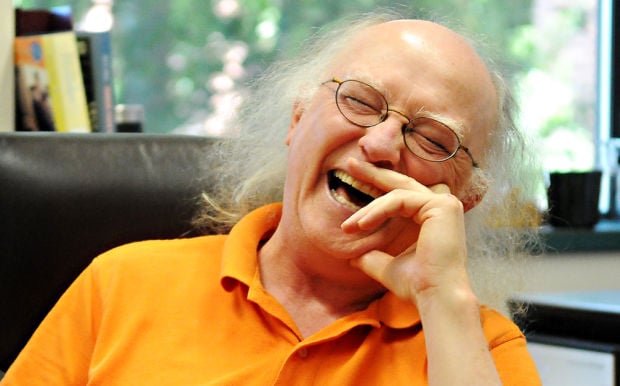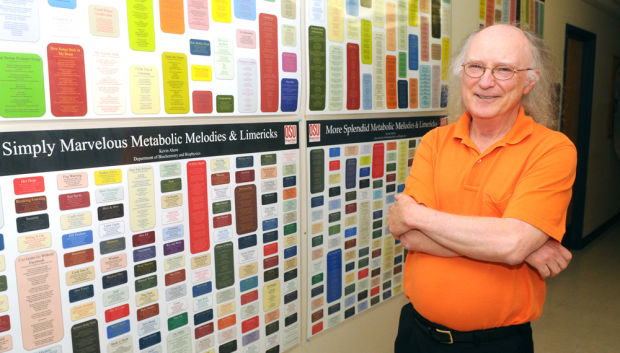
Joe Beckman says he’s not opposed to the idea of dumping a bucket of ice water on his head to support the ALS Association. In fact, the University Distinguished Professor of Biochemistry and Biophysics puts himself through a similar experience every time he goes whitewater rafting, a favorite hobby outside the lab and classroom.
Beckman studies Amyotrophic Lateral Sclerosis, commonly known as ALS or Lou Gehrig’s disease, at Oregon State and says he’s actively trying to understand the fatal motor neuron disease.
He is glad the viral “ice bucket challenge” is raising awareness about ALS to the general public.

An explanation of the disease can’t be boiled down to a five-second sound bite, says Beckman.
“There are 200,000 motor neurons in your body,” he explains. “ALS kills them relentlessly one after the other. Eventually, most victims can’t move a muscle or blink an eye.”
Most ALS patients pass away from respiratory failure or pneumonia a few years or even months after they are diagnosed.
The disease is fast moving, and Beckman receives emails almost every day from ALS patients or affected family members asking him to move even faster, to advance his research and to help find a cure.
“I always tell those people to get in contact with their local ALS Association chapter,” Beckman says. “They work with patients and families to understand the disease as it progresses and really can improve the quality of life.”

Beckman hopes to find treatment for the devastating disease soon, but he points out that better understanding of ALS itself must come before a treatment or cure. He encourages those taking part in the ice bucket challenge and donating to the ALSA to also write their legislators to urge them to support biomedical research.
Oregon State University President Ed Ray agrees and says he is proud of the work Beckamn is doing. “Joe Beckman at the Linus Pauling Institute is working on finding appropriate treatments and hopefully one day a cure for ALS.”
Ray participated in the ice bucket challenge. The video debuted at the Beaver football game against Portland State University at Reser Stadium.
“There is no guarantee for a cure so I don’t want to make a promise,” Beckman says. “But I can say that at Oregon State we are working seven days a week to better understand ALS.”
Source: http://poweredbyorange.com/2014/08/29/understanding-als/










